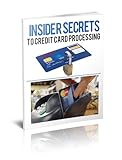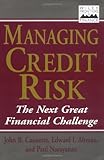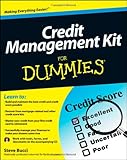Why do people prefer to use credit cards instead of debit cards ?
Question by Nassim: Why do people prefer to use credit cards instead of debit cards ?
As far as I know, credit cards involve paying interest rates to the bank wich costs additional money on top of the purchases price. On the other hand debit cards are free when used in offline and online purchases, so does anybody know why people prefer to use credit cards instead of debit cards ?
Best answer:
Answer by sporregar
Debit cards aren’t necessarily free to use. My credit union allows 4 transactions per month free and then you have to pay a fee per transaction after that. Some stores also charge a fee to use a debit card.
If you pay your credit card balance in full each month you don’t pay interest so you’re coming out ahead there. Also, debit cards get deducted immediately and many people are walking a thin line with overdrafting and can’t afford the fees for that.
Many people like to have what they want when they want it and don’t mind paying the interest on the credit card because they can just pay the minimum due. They can keep up with the Joneses that way and not worry about actually paying off what they owe.
Add your own answer in the comments!
What types of credit cards pays the customer for using the card?
Question by kiwi753: What types of credit cards pays the customer for using the card?
Can you please include the types of cards that a 19- year- old can get. What I mean is, some credit cards are difficult to receive based on age etc. I have a credit card and I dont like that company and I am about to actually close the account, but I want another credit card..
Best answer:
Answer by Lee
Speaking from experience, there are quite a few of credit cards that offer money back… I’m just not exactly sure if companies have varying names for these types of credit cards. The card I have is from Citi Bank and the card is called “Citi Dividends.” The way mine works is that for each $ 100 that I charge I get $ 1 back. It isn’t much, but there is no annual fee for this card either. Also, after the “dividends” is up to $ 50, you can call or go on their website to request that a check be cut. So, they’ll cut you a check that you’ll receive within a week or 2 for exactly $ 50… No taxes taken out or anything. =) Hope that helps!
What do you think? Answer below!
How does a credit card work, what is the best card available?
Question by dasnatch20: How does a credit card work, what is the best card available?
First time dealing with credit cards need as much info as possible.
Best answer:
Answer by seaportma
First, go on line. There are a lot of articles on getting into trouble with credit cards. Pay attention to them.
It sounds like you have no experience with credit cards, and are trying to build a credit history.
Apply for a card. Do not spend more than you do today; do not spend more than you can afford. Pay the entire credit statement as soon as you receive it. Since you are paying off the entire statement before the due date, you will not have to pay interest or late payment penalties. After a while, you will get other offers from other credit card carriers. If they have better terms (lower interest rate, better benefits) take a card with the new carrier, and cancel the original card.
Remember: if you do not pay off the entire statement, interest is charged on the unpaid portion. And this is where most newbies get into trouble.
Bottom line — Do not spend more than you can afford to pay off and do not get into debt.
Know better? Leave your own answer in the comments!
Who is the best company to get a home loan through with bad credit?
Question by Jessie: Who is the best company to get a home loan through with bad credit?
I have pretty bad credit and I need a home loan, but I don’t want to get screwed.. does anyone know who I should go with?
Best answer:
Answer by Quicken Loans
I recommend looking around for “subprime” lenders. They are companies that specialize in working with clients with bad or less than good credit.
Are you sure your credit is bad? Make sure you know your credit score. If you truly do have bad credit, you may want to take some steps to improve your credit before you apply for a mortgage.
Also keep in mind that the rules and regulations for the subprime loan market have changed recently and it may be hard to qualify for a loan.
But anyway, do a search for subprime lenders and you’ll find a company that can help you. I work for Quicken Loans and you can contact us also if you like. We don’t do very many subprime loans, but you never know what you qualify for until you speak to a mortgage professional and get real and accurate advice and numbers.
Know better? Leave your own answer in the comments!
Insider Secrets To Credit Card Processing (The Complete Guide To Saving Big On Credit Card Processing Costs) Reviews
Insider Secrets To Credit Card Processing (The Complete Guide To Saving Big On Credit Card Processing Costs)
This book is for any business that accepts credit cards as a payment for goods and/or services. This is a complete guide to the credit card processing industry.
This book will teach you how to instantly slash your credit card processing fees.
You’ll learn:
– how to get the best rates automatically
– save hundreds of dollars on your next equipment purchase
– finally learn how to read your merchant statement
– eliminate employee theft and fraud
– how to reduce or eliminate chargebacks.
– plus much much more!
This book is designed to help you understand the rates and fees you the merchant pay for credit card processing. Once you finally understand where the money goes, you can identify the areas that need improvement so you can save money. There is a step by step plan for this in the book.
Did you know that the fines start at ,000 for lost or stolen credit card data? Learn what you must do to avoid these fines and stay in business.
Learn how to easily become PCI Compliant.
If you have a website, learn the steps you must take to become compliant with Visa and MasterCard. Don’t obey the rules and your business could be shut down.
This book is written by a 10 year veteran in the credit card processing industry. It is time a guide was written to help business owners understand the unregulated, crooked, credit card processing industry.
Price:
Find More Credit Cards Products
Will the credit cards that charge no interest for transfers pay off installment notes too?
Question by mydoghatesme: Will the credit cards that charge no interest for transfers pay off installment notes too?
I have an installment loan that I pay. The payment is$ 239/mo. Is there a credit card or another loan I can get with no interest or low interest if I have great credit? My current rate is 10%.
Best answer:
Answer by bdancer222
If you find a credit card offering 0$ or low interest with no transfer fee, you could use it to pay off an installment loan. However, such credit card offers are pretty much non-existent now. If you have stellar credit, you may get an offer for a low interest rate for a limited period (a year or less), but there will probably be a transfer fee of about 3%.
You also have to be very careful with those special offers. Any little slip up will result in a rate increase.
What do you think? Answer below!
Categories: Loan Questions Tags: Cards, charge, Credit, Installment, interest, notes, transfers
Q&A: Where I can get a home loan with poor credit?
Question by Christina K: Where I can get a home loan with poor credit?
I have poor credit and I am on a time crunch. I have money for a down payment and the income for monthly payments, but my credit score is in the 500 range. The house that I am wanting is asking $ 95,000. Is it even remotely possible for me to get a loan?
Best answer:
Answer by bdancer222
Maybe, if your downpayment is big enough. Your score will really work against you and I assume you have at least some derogatory items in your credit file that cause that poor score. Those deroagtory items will also be a problem as most mortgage companies will insist those all be settled before you are approved.
You will also need at least a 2 year stable work history and sufficient income. Your monthly payment should be not more than 25% of your monthly income.
Know better? Leave your own answer in the comments!
Categories: Loan Questions Tags: Credit, home, loan, poor
Managing Credit Risk: The Next Great Financial Challenge (Frontiers in Finance Series)
Managing Credit Risk: The Next Great Financial Challenge (Frontiers in Finance Series)
The first full analysis of the latest advances in managing credit risk.
“Against a backdrop of radical industry evolution, the authors of Managing Credit Risk: The Next Great Financial Challenge provide a concise and practical overview of these dramatic market and technical developments in a book which is destined to become a standard reference in the field.” -Thomas C. Wilson, Partner, McKinsey & Company, Inc.
“Managing Credit Risk is an outstanding intellectual achievement. The authors have provided investors a comprehensive view of the state of credit analysis at the end of the millennium.” -Martin S. Fridson, Financial Analysts Journal.
“This book provides a comprehensive review of credit risk management that should be compulsory reading for not only those who are responsible for such risk but also for financial analysts and investors. An important addition to a significant but neglected subject.” -B.J. Ranson, Senior Vice-President, Portfolio Management, Bank of Montreal.
The phenomenal growth of the credit markets has spawned a powerful array of new instruments for managing credit risk, but until now there has been no single source of information and commentary on them. In Managing Credit Risk, three highly regarded professionals in the field have-for the first time-gathered state-of-the-art information on the tools, techniques, and vehicles available today for managing credit risk. Throughout the book they emphasize the actual practice of managing credit risk, and draw on the experience of leading experts who have successfully implemented credit risk solutions.
Starting with a lucid analysis of recent sweeping changes in the U.S. and global financial markets, this comprehensive resource documents the credit explosion and its remarkable opportunities-as well as its potentially devastating dangers. Analyzing the problems that have occurred during its growth period-S&L failures, business failures, bond and loan defaults, derivatives debacles-and the solutions that have enabled the credit market to continue expanding, Managing Credit Risk examines the major players and institutional settings for credit risk, including banks, insurance companies, pension funds, exchanges, clearinghouses, and rating agencies. By carefully delineating the different perspectives of each of these groups with respect to credit risk, this unique resource offers a comprehensive guide to the rapidly changing marketplace for credit products.
Managing Credit Risk describes all the major credit risk management tools with regard to their strengths and weaknesses, their fitness to specific financial situations, and their effectiveness. The instruments covered in each of these detailed sections include: credit risk models based on accounting data and market values; models based on stock price; consumer finance models; models for small business; models for real estate, emerging market corporations, and financial institutions; country risk models; and more. There is an important analysis of default results on corporate bonds and loans, and credit rating migration. In all cases, the authors emphasize that success will go to those firms that employ the right tools and create the right kind of risk culture within their organizations. A strong concluding chapter integrates emerging trends in the financial markets with the new methods in the context of the overall credit environment.
Concise, authoritative, and lucidly written, Managing Credit Risk is essential reading for bankers, regulators, and financial market professionals who face the great new challenges-and promising rewards-of credit risk management.
List Price: $ 100.00
Price:
Related Credit Advance Products
Credit Management Kit For Dummies
Credit Management Kit For Dummies
The painless way to manage credit in today’s financial landscape
People with great credit scores are getting turned down for credit cards and loans for homes and cars. What do they need besides a good score? What are lenders looking for now that they are extremely risk-averse? Repairing broken or damaged credit is one thing, but having to meet today’s much stiffer credit standards requiring that consumers consistently manage their credit is another thing all together. Credit Management Kit For Dummiesgives you answers to these questions and insight into these concerns, and also walks you down the correct path to credit application approval.
You’ll discover major changes with the Credit CARD (Credit Accountability, Responsibility, and Disclosure) Act provisions and the new Consumer Financial Protection Legislation Agency; the effect of tightened credit markets on those with good, marginal, or bad credit; new rules and programs including Hope and Government options via the Obama Administration; the best ways to recover from mortgage related credit score hits; tips for minimizing damage after walking away from a home; credit score examples with new ranges; and much more.
- The pros and cons of credit counselors
- The quickest and most effective way to undo damage from identity theft
- Advice and tips about adding information to a credit report, and beefing-up thin credit
- Guidance for evaluating your Credit Score in today’s economy
- Fannie Mae’s revised guidelines for purchasing mortgages
- Information on significant others (boyfriend/girlfriend/spouse) and credit and debt sharing
- IRS exceptions to the Mortgage Forgiveness Debt Relief Act in a mortgage meltdown situation
Not just for those who have bad credit and need to repair it, Credit Management Kit For Dummies also serves as an invaluable resource for those with average credit who want, or need, to manage it to get a job, reduce insurance costs, qualify for banking products, and more.
List Price: $ 34.99
Price:
Categories: Loan Products Tags: Credit, Dummies, Management
Q&A: What are the positive and negative sides of credit card’s usage?
Question by uk_emmigrant: What are the positive and negative sides of credit card’s usage?
Please,list me some of the positive and negative effects of using credit cards.
Thanks in advance !
Best answer:
Answer by Paul R
Negative:
People who lack self-discipline spend money they can’t pay back before the due date, and run up huge debts (kind of like Congress). Then, the atrocious interest rates make them very hard to pay off.
Positives:
1) You can establish good credit so that when you want to buy a car or house, you can get a loan on better terms.
2) You can buy stuff online and if someone manages to steal your info and run up a huge bill on your card, your loss is limited to $ 50 by law.
Edit 1:
Yes Rebecca, I DO know that, hence I don’t need to do any work or research on it to convince myself, but many people don’t. What is your point? Are you saying that 13% to 23% interest is not atrocious? Or, that the concept of usury is outdated?
The following sources are for you, to show that there are many people who do not know what they are getting into. Maybe they should, but the fact is, many don’t.
Know better? Leave your own answer in the comments!



